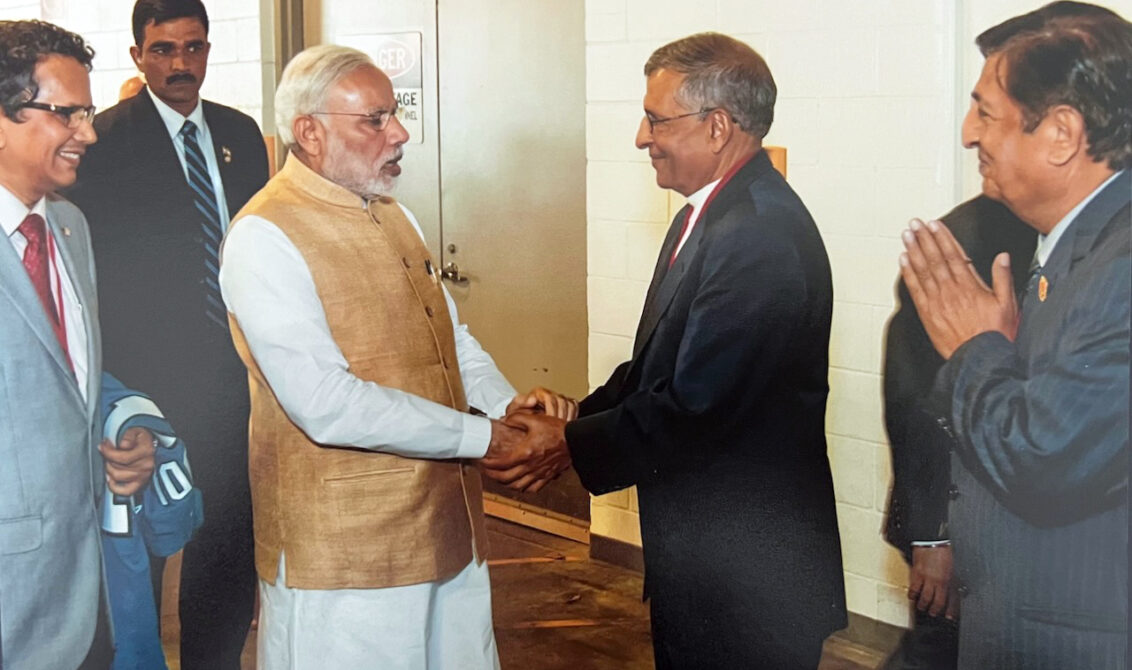
I was born the same year as Prime Minister Narendra Modi of India.
Like him, I was born at the dawn of India’s independence from British rule. In my childhood, I was immersed in the wave of Indian nationalism, especially on Independence Day — August 15th— when we went to early morning rallies singing patriotic songs. The tricolor Indian flag (saffron, white, and green) was hoisted in schools and government offices. Everyone stood at attention with misty eyes and sang “Jana Gana Mana,” the national anthem.
I very much relate to the sentiments that Mr. Modi shares in his national monthly addresses, since 2014 when he became the Prime Minister. One of his remarks has always impressed me, “I do not want to be someone but to do something.”
In August 1973, exactly fifty years ago, I left India for the first time and came to the US to earn my master’s degree in engineering. When I left, India was a developing country. My father, a government official, had a private office, with chaprasi who was summoned to move files and serve chai to important guests. On my father’s desk was a black phone, a bell, a brown file folder, and nothing else. In contrast, when I started work in the US, I could have as many supplies as I wanted. I could even bring some home.
India has come a long way since then. Economic liberalization started in India after the freedom fervor subsided and Modi’s BJP ousted the Congress party’s Nehru family after almost 44 years, in power. In the past nine years, Mr. Modi has put the pedal to the metal on economic reforms, and India has become the world’s fifth-largest economy, with people’s hopes and aspirations second to none.
Twenty years ago, Mr. Modi was chief minister of the state of Gujrat. Under his leadership, it became India’s most prosperous state, with double-digit growth, making it a power surplus from a state of droughts — water was the main source of electricity. Then as prime minister, he has kept inflation low and produced impressive GDP growth.
He has worked hard to reduce friction in the economy of a country of 1.4 billion — four times the US population. He incentivized hundreds of millions of people to open bank accounts. In 2021, 77% of Indians over 14 years of age had bank accounts, up from 52% in 2014. Through bank accounts and offering a free government-provided universal payment interface (UPI) called Paytm, anyone including street vendors with a QR code get money deposited directly into their accounts. Having an account also establishes a financial credit history and lending becomes far easier, fueling India’s micro-economy.
Most of the Indian people are delighted with Modi and with his conversational style monthly addresses in Hindi, revealing his thinking. In contrast, Nehru’s family was educated in English schools. Like me, Mr. Modi probably did not speak English until he was an adult.
He is proud of his Hindu beliefs and practices, the traditions that he was raised in. I was also raised in a devout Hindu family. I now combine the values instilled in me by Hinduism with Western rationalism. Twenty-five years ago, when my husband and I took our American-born daughters to India they asked us to stop at every roadside shrine or stone god painted with saffron so that they could touch their foreheads to the ground, like their cousins did.
Hindus are followers of Vedic practices — based on the Vedas, written thousands of years ago. They worship many forms of deities as incarnations of one god. In that spirit, Buddhism and Jainism from 400 BC were peacefully absorbed and adopted in India, as their own sects.
There had not been any religious wars in India until the 13th century Mogul invasion. The Moguls destroyed Hindu temples and forced conversions to Islam. Those sentiments still have not left India. But today Hindus and Muslims co-coexist with friendship as depicted in Bollywood movies. Hindu-Muslim riots erupt in corners of India ever since independence and continue to remain at similar levels — unfortunately.
Prime Minister Modi is often seen and photographed going to Hindu temples and performing rituals. As a result, both media and his opponents call him a Hindu nationalist, even though India is a secular country. The media thrives on controversies. Western media also has picked on it for a different reason, tainted by the new right of the West.
Modi is initiating social reforms, such as “Save a Girl,” which is a code for saving female fetuses — and not anti-abortion. Supposedly that is why in India the sex ratio of newborns is 105 boys to 100 girls, according to Pew Research.
He is also urging parents to be more vigilant of the whereabouts of their teenage sons. Young men are daily seen brushing and violating women’s bodies, in New Delhi buses. I personally experienced it back in Delhi and still remember how distasteful and helpless I felt. Girls carried pins to protect themselves. We considered it a nuisance because much worse crimes against women went unchecked.
Modi was heavy-handed in revoking Article 370, which gave special status to Kashmiris. That only increased the anxiety among Muslims. Article 370 has been a controversial issue for the past 75 years.
Modi is also criticized for the decline of media freedom, creating an atmosphere of self-censorship in the media, supposedly. A free press is the very foundation of a healthy democracy.
Bill Clinton wisely commented politics is a “contact sport” — one will be ruffled.
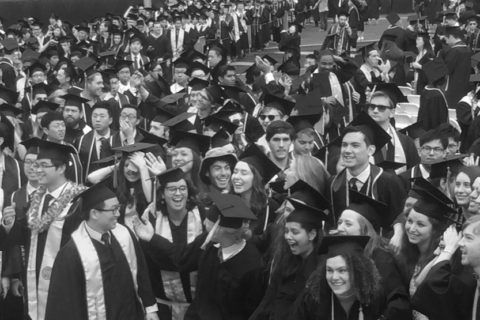
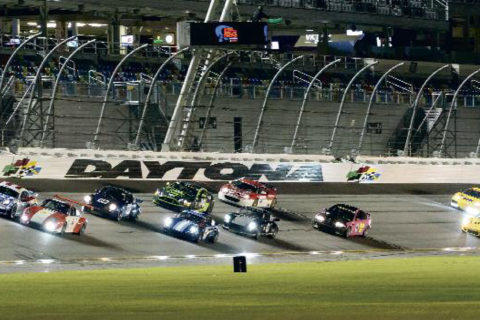


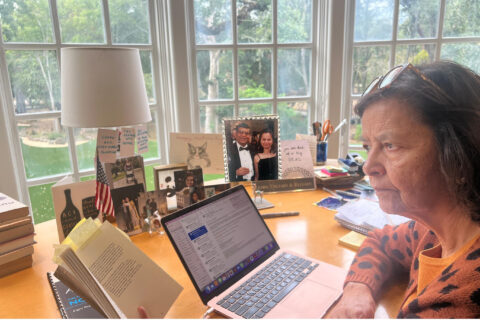
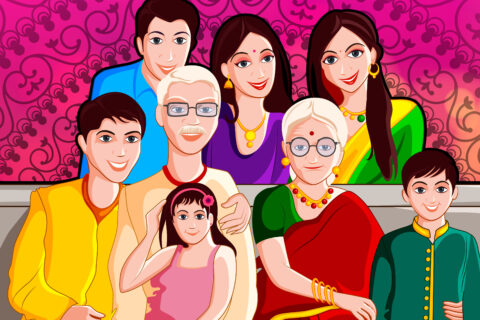
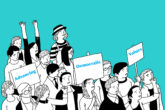

Chandru Bhambhra
Namaste Dear Vinita Ji 🙏
Great article 👌. Modiji’s following statement “I do not want to be someone but to do something.” Puts a Lot in my mind and has impressed me also a lot.
Regards
Abhimanyu Singh
Very nice write up
Nationalism in Bharat is being refocused by vested interests
In Bharat भारत ,भा represents भास्कर / प्रकाश ,Nation pursuing knowledge
M K Vasudevan
INDIA’S DECADE
2013 2023
Mutual fund Investmnents 1001 B 507 B
Corporte Tax 34% 22%
Digital Trans as % of GDP 4% 76%
RBI CPI Inflation 10% 4.70%
FDI 22 B 46 B
Highways 25700 km 537000 km
Electrfied Railways 4000 km 28000 km
GST Collections 88 B 220 B
Direct Benefit transfer < 1B 32 B
corporate debt as % of GDP 62% 50%
Real Estate Projects 50000 75000
M K Vasudevan
Abrogation of article 370 was overdue. it was like reservations were supposed to be for 15 years after 1947. However not abrogating 370 after 15 years lead to control of state by terrorist elements with Tacit support by the central government. The situation was so bad the the designated terrorist we using government facilities and drawing government salaries and perks. Had Kashmir gone to Pakistan it would surely been exploited like Baluchistan has been. The country in which Muslims live freely and in peace is most likely India.
For the excess of terrorism watch
https://www.youtube.com/watch?v=i6mcUxyLXxs
https://www.youtube.com/watch?v=k_-tYv7rNdc
Vijay Gupta
Modi privatized Air India–a nontrivial achievement, and symbolic of his Gujarati business mindset. But he allowed China to grab some of India’s territory which is symbolic of his non-kshatriya (non-warrior) mindset. Hopefully he has learned a lesson, and is strengthening Indian defenses to stand up to China in future.
Modi hired the best foreign minister (Jaishankar) that India has ever had. He also got the new parliament building built on schedule, along with numerous other big projects. His bullet train is behind schedule because of legal problems with land acquisition.
Article 370 was supposed to be temporary and the only way to end the controversy around it was to revoke it–which Modi did successfully.
Overall, a very good track record compared to that of his predecessors.
Matt Granovetter
Interesting history.
But regarding the last quote of Clinton, perhaps Monica should have carried a pin.
Harjinder Ajmani
Hi Vinita, good article in praise of Prime Minister Narendra Modi. However there were some key historical facts that need to be corrected. The Muslim invasion and destroying of Hindu temples began by Mahmood of Ghajni in the early 11th century with his demolition and looting of famous Somnath Temple in present day Gujarat. Later on, Sultans of Delhi and Mughals continued with the "tradition" well into 17th century.
Modi has indeed liberalized the Indian economy tremendously since him becoming PM in 2014. However, the liberalization process was started by Congress Government in 1991 under PM Rao and finance minister Manmohan Singh, who himself became a PM in later years and continued the policies.
Narendra Modi indeed is a decisive leader and able executive, who has made some tough decisions such as Article 370, General Excise Tax, speeding the infrastructure projects, privatization of Air India and Airports, massive digital implementation to reduce corruption. These decisions were being endlessly debated by previous governments for decades. He was able to implement them thru quickly because of his autocratic style AKA Chinese leader Deng.
However I hope his curbing of the media, overt Hindu Rashtra movement and no dissent allowed policies do not take India in a wrong direction in future.
Diana Bell
Thank you, Vinita, for sharing this cultural perspective. Though I have traveled extensively to India, I was not exposed to the depth of Mr. Modi’s background and the cultural and religious insights that you shared. I found this article quite enlightening and appreciate your sharing. Yes, the Free Press is key to democracy!
Devashish Sharma
A true, unbiased commentary on our Prime Minister. Thank you for that! 🙏
Deepka Lalwani
Dear Vinita,
I agree with you most often. This time, I’ve conflicting idea abt Modi. Yes, he has improved India’s financial and political status and image.
India is a secular country but under Modi minorities have suffered.
He let Gujrat riots happen, turned his face away. Something similar is happening now.
Latest incident is in Manipur, it’s ignored, overlooked and pushed under the rug.
Every woman assaulted is my extension of womanhood.
Women hold up half the sky as the Chinese saying goes but those brutalized women can no longer hold up and sky is falling down.
BTW I was part of the group that organized Manipur women protest rally in Fremont as IBPW rep., along with Maitri, Narika and SAVE.
I do know you’re one of the active supporter of Maitri.
Hemant Lall
Great picture of Naren with Modi. Thanks for sharing.
As always, your article is insightful and thought provoking. Modi may not be perfect. But he, and his predecessors, make me proud to be an Indian!
Vivek Sheel
Very well described and very touching
Thanks